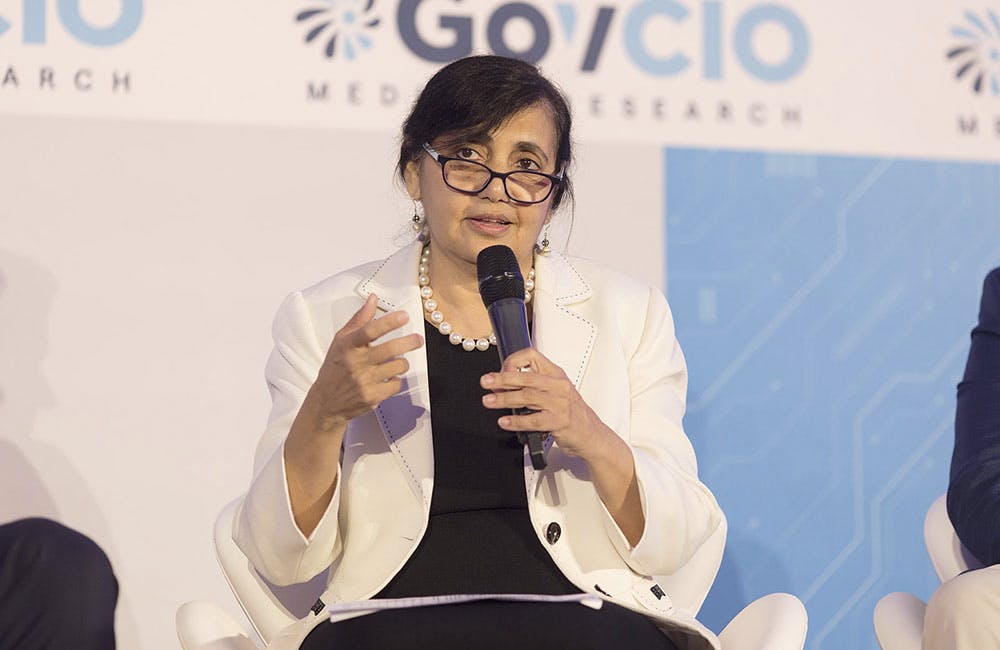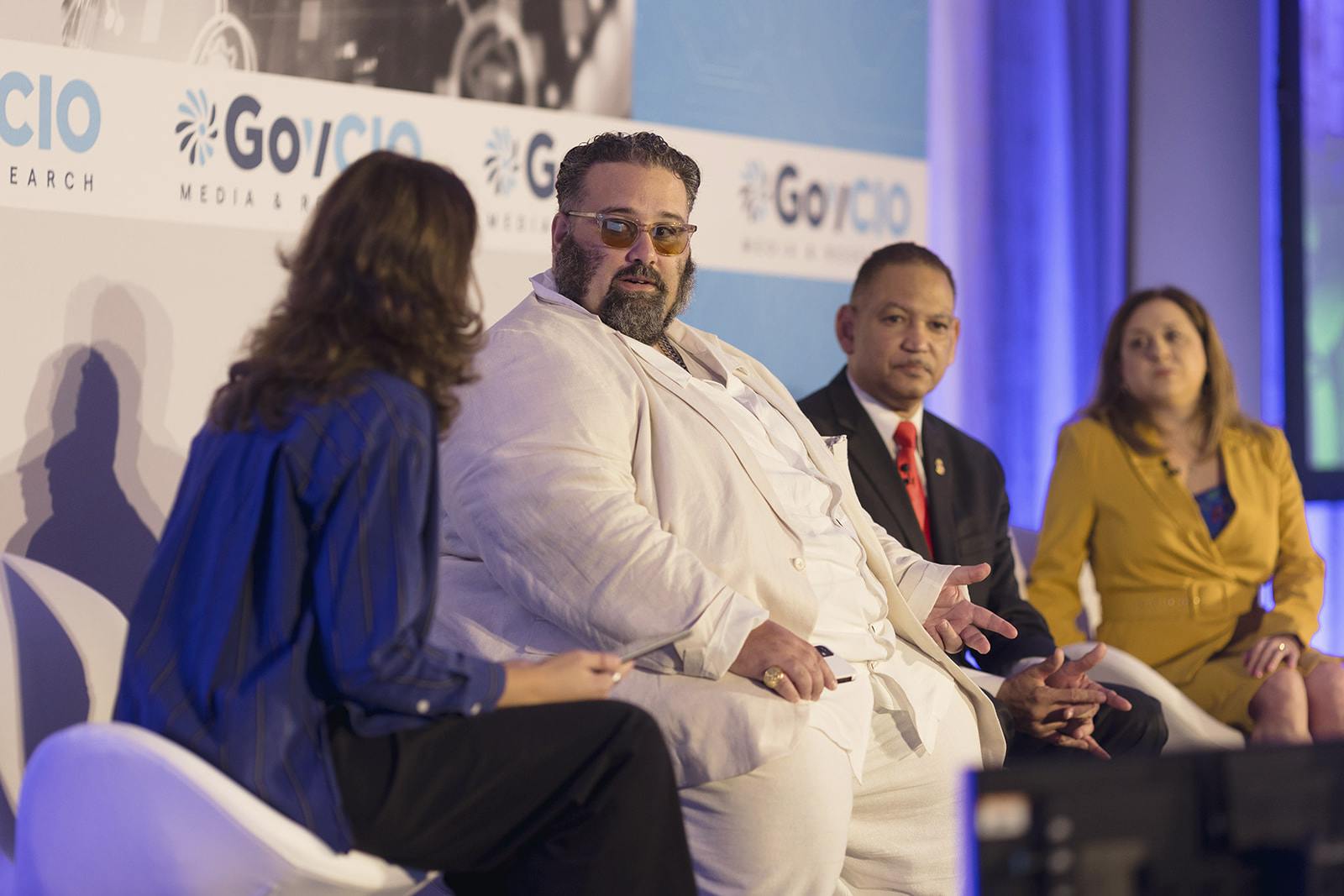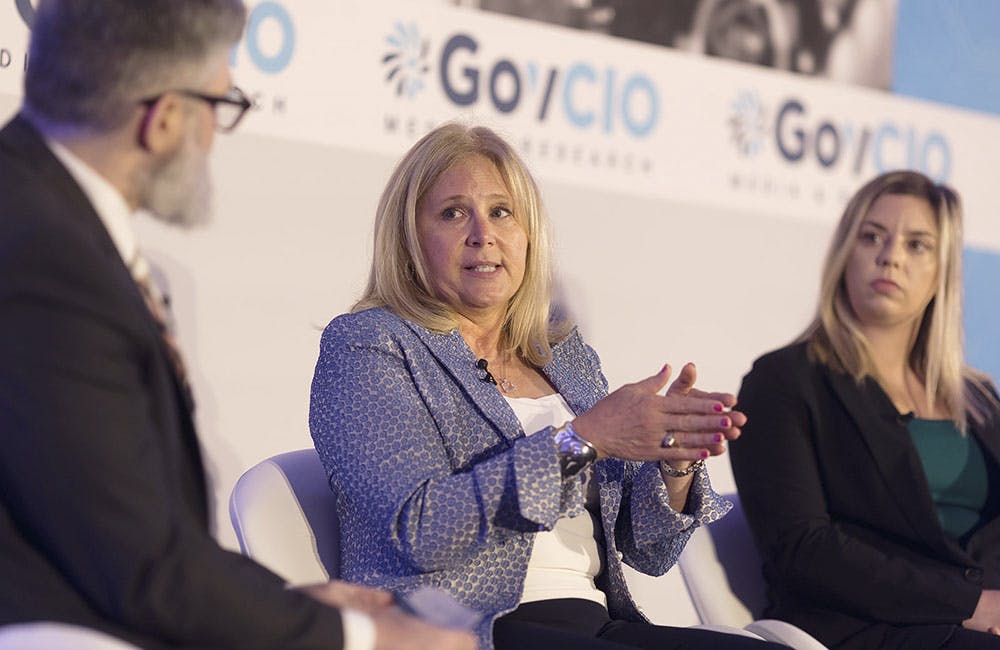DevSecOps Enables VA’s Digital Transformation
VA’s DevSecOps lead is integrating agile incrementally into its strategic priorities to guide its digital transformation journey.

The Department of Veterans Affairs’ Office of Information and Technology is using DevSecOps to enhance processes, develop new solutions and provide better services to veterans, Todd Simpson, VA’s deputy assistant secretary for DevSecOps, said during GovernmentCIO Media & Research’s Disruptive DevSecOps virtual event.
“I’ve worked very hard with my team to put together a set of strategic priorities that I believe are going to be transformative and put the organization exactly where it needs to enable the mission of the VA and provide value and services to the veterans,” Simpson said.
Simpson joined the agency in July and has initially been working to build out the agency’s product lines, one of seven priority areas, toward furthering overall software development and cybersecurity in the agency’s modernization strategy.
Simpson outlined the seven priority areas: customer outcomes, metrics and visibility, upskilling workforce, streamlining business functions, product line maturity, creating a modern software factory and expanding cloud platforms.
Streamlining business functions has enabled VA to gain full visibility into the organization, drive accountability and better position its Agile Center of Excellence, he said.
Simpson has been taking an incremental approach to DevSecOps implementation, recognizing the large cultural shift that is required before making any major reorganizations. In support of that, Simpson said a large focus area at the VA is upskilling its workforce.
“We have an ‘all-employees’ survey to guide the types of endeavors that I’m going to put in action. I want to connect with my staff and to make sure that they see that I’m actively listening to them,” Simpson said. “We do that in a variety of forums that are all part of this cultural transformation.”
Maturing the product lines will help align the business with the developers to drive a human-centered design and iterative development, Simpson said. This will enable better leveraging cloud, software-as-a-service and automation.
The department’s VA Enterprise Cloud (VAEC) serves as the foundation for these innovative solutions.
“[VAEC] is the only way to offer our SaaS solutions, which are at the top of the spectrum,” Simpson explained. “VAEC offers us that foundation for our continuous ATOs, security inheritance, ability to scale and our on demand environments.”
Simpson has worked to build out a tool ecosystem that is broken down into various phases of the DevSecOps life cycle by conducting base inventory and accounting to define governance around future architecture.
“If we have a governed set of tools, it will get us to this future state,” Simpson said.
VA is currently looking for new and innovative ways to do business. Simpson outlined a few of the department’s target areas moving forward, including AIOps, machine learning, network analytics, hyper-automation, robotic process automation and rollout of its new electronic health record.
“We’re looking at anything that can automate our processes in ways that are adding impact and making it easier to spin things up and to reuse. We want to think about efficiency,” Simpson added.
As VA continues on its transformation journey, Simpson said that the department will use an Agile approach, a DevSecOps mindset and an iterative deployment model to drive down any release that isn’t occurring under 90 days.
“We’ve got some product lines that are released every two weeks. That’s really the target goal for all 32 of our product lines — to get to that cadence where it’s persistent releases and we’re really walking the walk,” Simpson said.
This is a carousel with manually rotating slides. Use Next and Previous buttons to navigate or jump to a slide with the slide dots
-

Inside DOD’s Push to Grow the Cyber Workforce Through Academia
Diba Hadi gives her first interview since becoming principal director of the DOD’s Cyber Academic Engagement Office.
15m listen -

Agencies Tackle Infrastructure Challenges to Drive AI Adoption
Federal agencies are rethinking data strategies and IT modernization to drive mission impact and operational efficiency as new presidential directives guide next steps.
5m read Partner Content -

Generative AI Demands Federal Workforce Readiness, Officials Say
NASA and DOI outline new generative AI use cases and stress that successful AI adoption depends on strong change management.
6m read -

The Next AI Wave Requires Stronger Cyber Defenses, Data Management
IT officials warn of new vulnerabilities posed by AI as agencies continue to leverage the tech to boost operational efficiency.
5m read -

Federal CIOs Push for ROI-Focused Modernization to Advance Mission Goals
CIOs focus on return on investment, data governance and application modernization to drive mission outcomes as agencies adopt new tech tools.
4m read -

Fed Efficiency Drive Includes Code-Sharing Law, Metahumans
By reusing existing code instead of rewriting it, agencies could dramatically cut costs under the soon-to-be-enacted SHARE IT Act.
5m read -

Agencies Push Data-Driven Acquisition Reforms to Boost Efficiency
New initiatives aim to increase visibility of agency spending, improve data quality and create avenues to deploy solutions across government.
5m read -

Data Transparency Essential to Government Reform, Rep. Sessions Says
Co-Chair of the Congressional DOGE Caucus Rep. Pete Sessions calls for data sharing and partnerships to reduce waste and improve efficiency.
5m read -

DOD Turns to Skills-Based Hiring to Build Next-Gen Cyber Workforce
Mark Gorak discusses DOD’s efforts to build a diverse cyber workforce, including skills-based hiring and partnerships with over 480 schools.
20m listen -

AI Foundations Driving Government Efficiency
Federal agencies are modernizing systems, managing risk and building trust to scale responsible AI and drive government efficiency.
40m watch -

Trump Executive Order Boosts HBCUs Role in Building Federal Tech Workforce
The executive order empowers HBCUs to develop tech talent pipelines and expand access to federal workforce opportunities.
3m read -

Navy Memo Maps Tech Priorities for the Future Fight
Acting CTO’s memo outlines critical investment areas, from AI and quantum to cyber and space, as part of an accelerated modernization push.
5m read
















